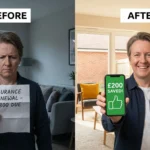The emergence of autonomous vehicles over the last few years has provoked essential questions with regards to the insurance industry and its future. Perhaps the biggest worry is whether insurance for self-driving cars could be a threat to one of Berkshire Hathaway’s best-performing business lines — insurance. With the ongoing evolution of tech — and an auto market seemingly just one, two or five generations from almost completely autonomous transit — the traditional state of the American auto insurance business seems liable for some giant shakeups that could wobble the financial foundations for giants like Berkshire Hathaway.
The Insurance Empire of Berkshire Hathaway
Berkshire, famously helmed by investor icon Warren Buffett, has historically depended on underwriting as a major source of earnings. Marketing subsidiaries such as GEICO and General Re as well as Berkshire Hathaway Reinsurance Group represent the core of its business model, delivering a steady flow of both underwriting profits and the “float” — premiums received prior to claims payments — that Buffett employs to fund long-term investments.
Auto insurance (especially via GEICO) has been the largest piece. Insuring human drivers (who sleep, by the way, and can be distracted or reckless or make mistakes that lead to claims) is the core of the traditional model. While this risk is perceived as high, insurance premiums are fair and profitable. However, the risk landscape is changing rapidly as autonomous vehicles are introduced, and, increasingly, adopted.
Autonomous Vehicles and Changing Nature of Risk
For autonomous vehicles, which rely on advanced artificial intelligence and sensor-based technologies, the goal is to minimize human error, the leading cause of road accidents. We can expect to see a significant decrease in accident rates as these cars become more common. If there are fewer accidents, then, logically, claims should also fall and with that comes some pressure on premiums. It defies long-held notions that have underlined auto insurance profitability over the decades.
This could prove to be a threat to a company such as Berkshire Hathaway, which has large amounts of exposure to auto insurance. Should the advent of self-driving cars decrease the frequency of accidents — or, at the very least, decrease the severity of accidents — GEICO and its fellow auto insurers may face shrinking margins and decreasing market relevance.
Transitioning from Liability Coverage for Drivers to Product Liability Insurance
Perhaps the most drastic transformation of insurance model, will be the transition from driver-based auto insurance to product liability insurance. With self-driving cars taking over everything, the blame would shift from the driver to the car manufacturer and/or software company for any accidents that occur. This indicates that companies such as Tesla, Waymo, and Apple could be held liable for damages resulting from a software error or sensor failure.
This reallocation may lead to less consumption of classic personal auto coverage and more demand for commercial product liability coverage. Berkshire Hathaway does offer some commercial and specialty lines but the depth of what transition would look like would diversify its core revenus stream and potentially make the auto insurance side of the business less integral.
What The Future Could Look Like For Berkshire Hathaway

But even with the headwinds ahead, its way too early to write Berkshire Hathaway off. The firm boasts a very lengthy track record of evolving with the times and efficiently putting cash to work. As AV insurance matures, Berkshire might adapt and invest heavier into product liability (to cover auto manufacturers), into cyber (to cover their software), and to the data which will help them understand the new risk models.
Mass adoption of self-driving cars is still far away, too. Traditional auto insurance probably isn’t going away anytime soon, due to regulatory hurdles, public acceptance, and limits to the necessary infrastructure. It offers time for legacy insurers like GEICO to adjust, test, and commit resources to future-proofing their business models.
Conclusion: A Transformation Not a Collapse
Does that mean autonomous vehicle insurance could put the most lucrative piece of Berkshire Hathaway at risk? The answer is nuanced. The transition to automated driving is certainly a burden for conventional automotive insurance, but it simultaneously creates adjacent opportunities for insurance. It is just about as real as it gets, but it is not an impossible enemy. The pace of adoption of self driving vehicles, development of regulations, and the ability of legacy insurers to adjust to these trends should determine much of this.
The immense resources, diversified portfolio, and strategic vision of Berkshire Hathaway will buffer it once industry change takes place. But the development of AV insurance is a trend to follow — not only in the Berkshire bubble, but in the greater insurance world as well.








